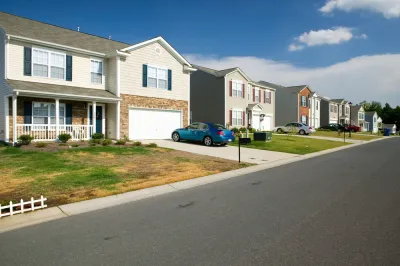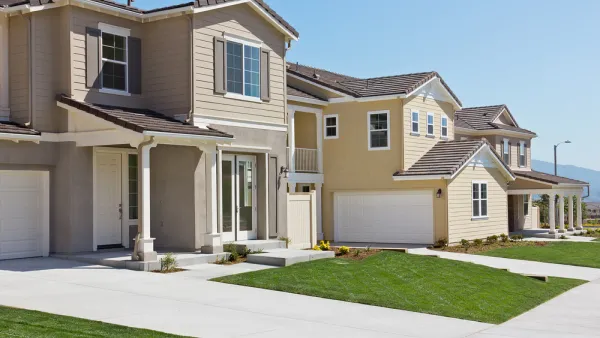There's been no shortage of discussion and debate about what's causing the price of homes in the United States to skyrocket at record rates, but less discussion of the consequences for housing market trends on the broader economy.

Don Layton, former CEO of Freddie Mac, writes for the Joint center for Housing Studies of Harvard University to amplify recent data about the state of the U.S. homeownership market after 17 months of the Covid-19 pandemic.
On September 28, the Federal Housing Finance Agency (FHFA), the regulator of Freddie Mac, Fannie Mae, and the Federal Home Loan Banks, reported its monthly index of house prices for July. It showed an astounding increase of 19.2 percent over the prior 12 months and that, in the 17 months since the pandemic began, the increase has been 22.5 percent. This is the fastest increase since record-keeping began, including in the run-up to the bubble in 2007-8. By the time we reach the second anniversary of the pandemic, given today’s momentum for more increases, a reasonable estimate is that prices may have climbed by at least 30 percent over those two years. (If the most recent rate of increase—a very high 1.4 percent in just one month—continues, the two-year increase would actually be about 35 percent!)
This kind of price appreciation isn't normal, according to Layton, who takes the new data a step further by providing analysis of the consequences of the skyrocketing cost of owning a home in the United States. Layton provides additional details in the source article for the four consequences listed below:
- Increasing equity from the rising value of homes will lead to increased household consumption, which, in turn, will increase the Gross Domestic Product (and higher GDP means employment growth and wage increases).
- The $4.5 trillion gap in wealth between homeowning families and renting families will continue to widen. According to Layton, " 'have' and 'have-not' is increasingly becoming synonymous with whether a family owns their home or not.
- Runaway home prices are likely to shift the usually obstinate homeownership rate in the United States (which has hovered around 65 percent for 50 years).
- The runaway cost of housing will also "inadvertently" cause reports to underestimate the effect of inflation. According to Layton, "policymakers are flying more than a bit blind, not seeing the inflation that the citizenry feels (especially those looking to buy their first home). That does not bode well for those policymakers, especially at the Federal Reserve, making the best decisions."
FULL STORY: WHAT DO RUNAWAY HOME PRICES MEAN FOR THE US?

Analysis: Cybertruck Fatality Rate Far Exceeds That of Ford Pinto
The Tesla Cybertruck was recalled seven times last year.

National Parks Layoffs Will Cause Communities to Lose Billions
Thousands of essential park workers were laid off this week, just before the busy spring break season.

Retro-silient?: America’s First “Eco-burb,” The Woodlands Turns 50
A master-planned community north of Houston offers lessons on green infrastructure and resilient design, but falls short of its founder’s lofty affordability and walkability goals.

Test News Post 1
This is a summary

Analysis: Cybertruck Fatality Rate Far Exceeds That of Ford Pinto
The Tesla Cybertruck was recalled seven times last year.

Test News Headline 46
Test for the image on the front page.
Urban Design for Planners 1: Software Tools
This six-course series explores essential urban design concepts using open source software and equips planners with the tools they need to participate fully in the urban design process.
Planning for Universal Design
Learn the tools for implementing Universal Design in planning regulations.
EMC Planning Group, Inc.
Planetizen
Planetizen
Mpact (formerly Rail~Volution)
Great Falls Development Authority, Inc.
HUDs Office of Policy Development and Research
NYU Wagner Graduate School of Public Service




























